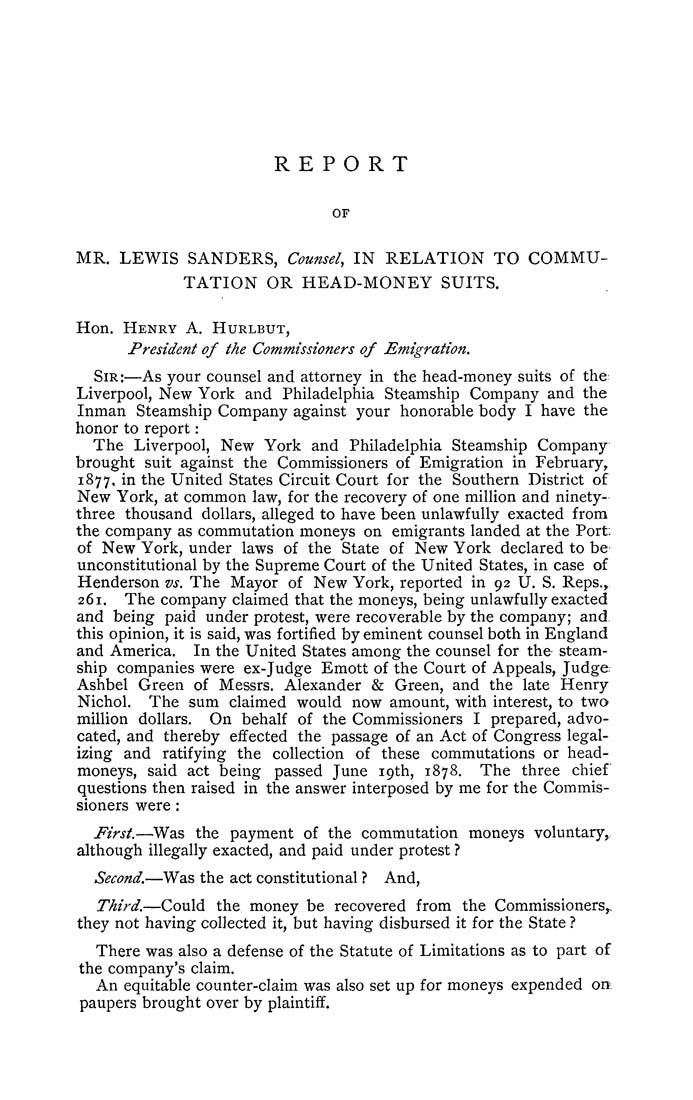REPORT
of
MR. LEWIS SANDERS, Comisel, IN RELATION TO COMMU¬
TATION OR HEAD-MONEY SUITS.
Hon. Henry A. Hurlbut,
President of the Commissioners of Emigration.
Sir:—As your counsel and attorney in the head-money suits of the
Liverpool, New York and Philadelphia Steamship Company and the
Inman Steamship Company against your honorable body I have the
honor to report:
The Liverpool, New York and Philadelphia Steamship Company
brought suit against the Commissioners of Emigration in February,
1877, in the United States Circuit Court for the Southern District of
New York, at common law, for the recovery of one million and ninety-
three thousand dollars, alleged to have been unlawfully exacted from
the company as commutation moneys on emigrants landed at the Port:
of New York, under laws of the State of New York declared to be
unconstitutional by the Supreme Court of the United States, in case of
Henderson vs. The Mayor of New York, reported in 92 U. S. Reps.,
261. The company claimed that the moneys, being unlawfully exacted
and being paid under protest, were recoverable by the company; and
this opinion, it is said, was fortified by eminent counsel both in England
and America. In the United States among the counsel for the steam¬
ship companies were ex-Judge Emott of the Court of Appeals, Judge
Ashbel Green of Messrs. Alexander & Green, and the late Henry
Nichol. The sum claimed would now amount, with interest, to two
million dollars. On behalf of the Commissioners I prepared, advo¬
cated, and thereby effected the passage of an Act of Congress legal¬
izing and ratifying the collection of these commutations or head-
moneys, said act being passed June 19th, 1878. The three chief
questions then raised in the answer interposed by me for the Commis¬
sioners were:
First.—Was the payment of the commutation moneys voluntary,
although illegally exacted, and paid under protest ?
Second,—Was the act constitutional ? And,
Third.—Could the money be recovered from the Commissioners,,
they not having collected it, but having disbursed it for the State ?
There was also a defense of the Statute of Limitations as to part of
the company's claim.
An equitable counter-claim was also set up for moneys expended ort
paupers brought over by plaintiff.
|








